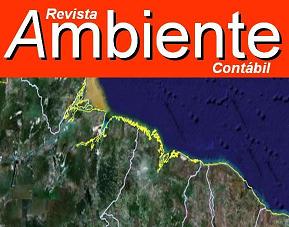EVOLUÇÃO E DESENVOLVIMENTO DA TEORIA DA CONTABILIDADE: CONTEXTO HISTÓRICO
Resumo
O homem, a partir do momento que teve a necessidade de tomar conta do seu patrimônio, utilizou-se de mecanismos rudimentares como fichas de barro e depois de argila, para, mais adiante, utilizar-se de contas. No início, era o homem tentando resolver problemas práticos, do controle de seu patrimônio. Ao longo do tempo, passou dessa simplicidade para o desenvolvimento de uma ciência: na idade medieval, houve certo aperfeiçoamento, por causa das atividades comerciais; na idade moderna, o surgimento das escolas do pensamento contábil, todas provenientes da Europa. A chamada Escola Européia alcançou seu momento de glória, principalmente com a Italiana; porém, por ter uma natureza bastante teórica, fez com que houvesse a ascensão mais adiante da Escola Norte-Americana, baseada na prática e criada pelos profissionais.
Palavras-chave: Escolas do Pensamento Contábil. Escola Européia. Escola Norte-Americana.
Downloads
Downloads
Publicado
Como Citar
Edição
Seção
Licença
Autores que publicam nesta revista concordam com os seguintes termos:
Os autores mantêm os direitos autorais e concedem à revista o direito de primeira publicação, com o trabalho simultaneamente licenciado sob a Licença Creative Comomns Attribution que permite o compartilhamento do trabalho com reconhecimento da autoria e publicação inicial nesta revista.
Os autores têm autorização para assumir contratos adicionais separadamente, para distribuição não-exclusiva da versão do trabalho publicada nesta revista (ex.: publicar em repositório institucional ou como capítulo de livro), com reconhecimento de autoria e publicação inicial nesta revista.
Os autores têm permissão e são estimulados a publicar e distribuir seu trabalho online (ex.: em repositórios institucionais ou na sua página pessoal) a qualquer ponto antes ou durante o processo editorial, já que isso pode gerar alterações produtivas, bem como aumentar o impacto e a citação do trabalho publicado.
A Revista Ambiente Contábil utiliza uma licença Creative Commons CC-BY-NC-ND (Atribuição-NãoComercial – SemDerivações 4.0). Isso significa que os artigos podem ser compartilhados e que a Revista Ambiente Contábil não pode revogar estes direitos desde que se respeitem os termos da licença:
Atribuição: Deve-se dar o crédito apropriado, prover um link para a licença e indicar se mudanças foram feitas.
Não Comercial: Não se pode usar o material para fins comerciais.
Sem Derivações: Se for remixar, transformar ou criar a partir do material, não se pode distribuir o material modificado.

Creative Commons - Atribuição-NãoComercial-SemDerivações 4.0 Internacional


 Português (Brasil)
Português (Brasil) English
English Español (España)
Español (España)


